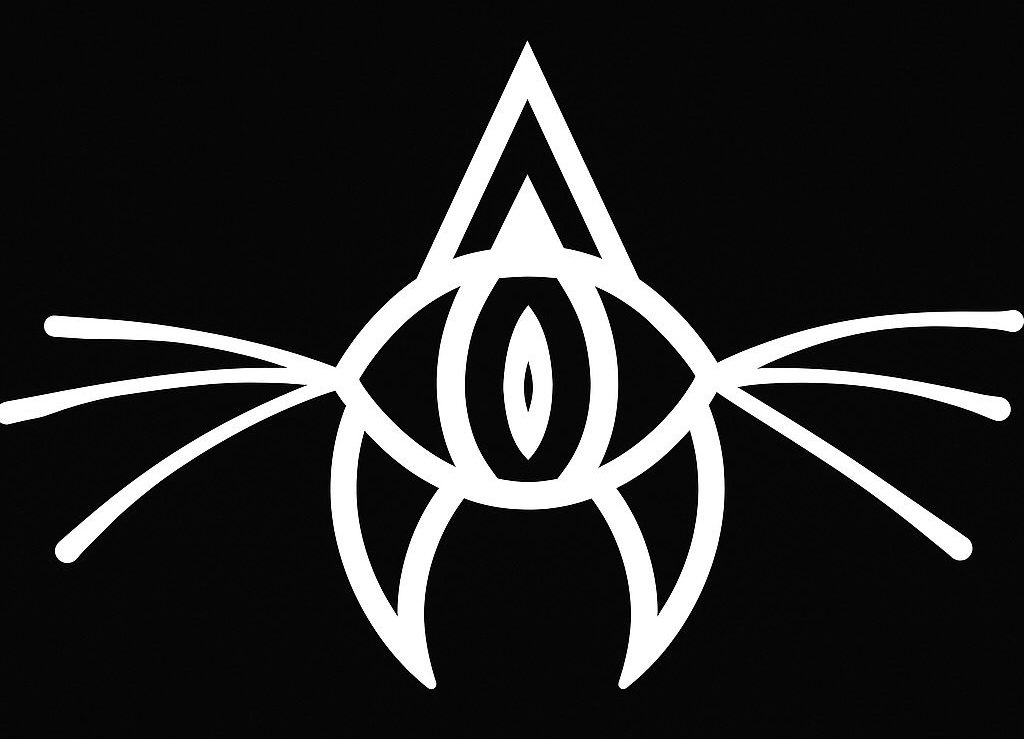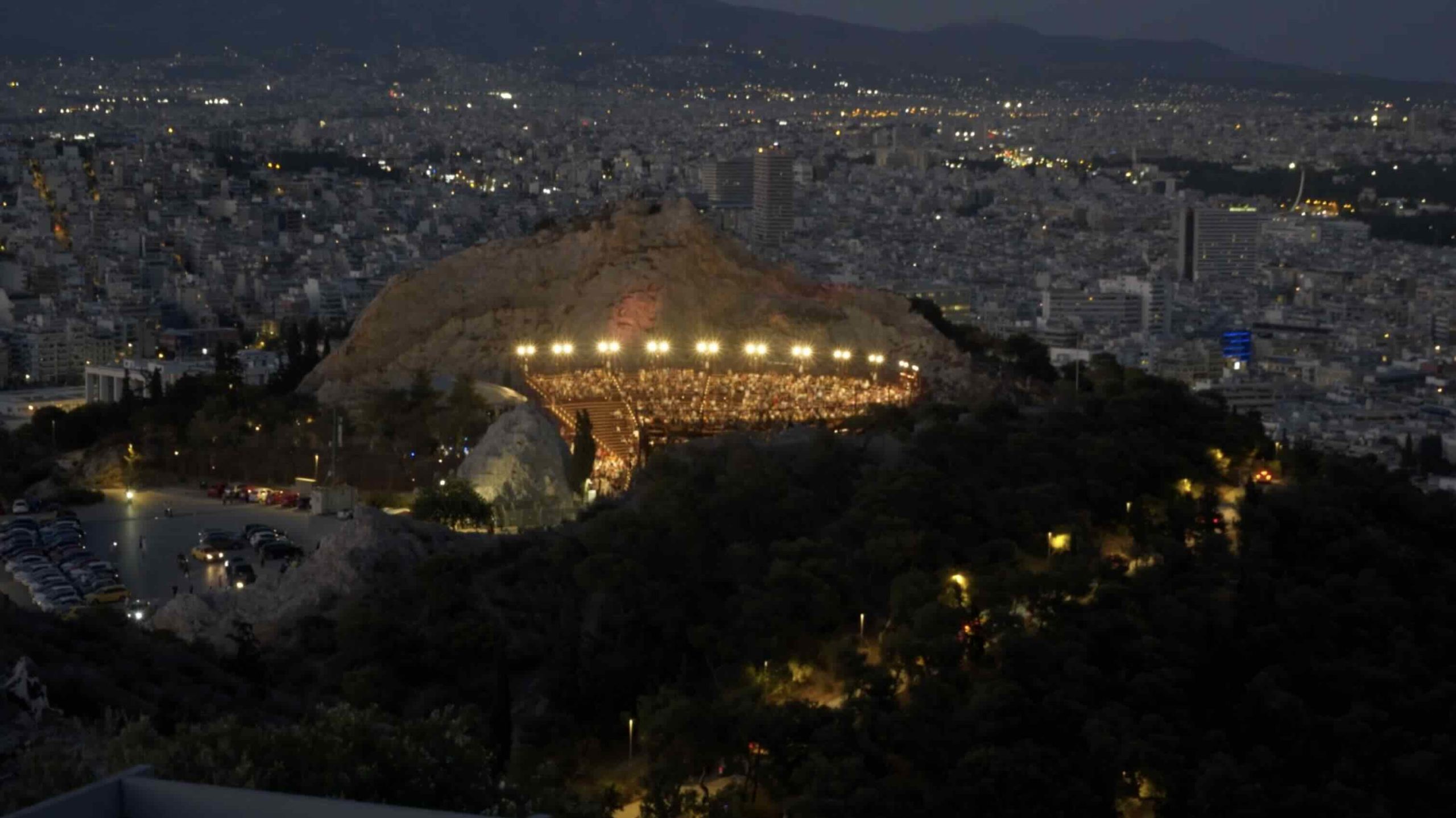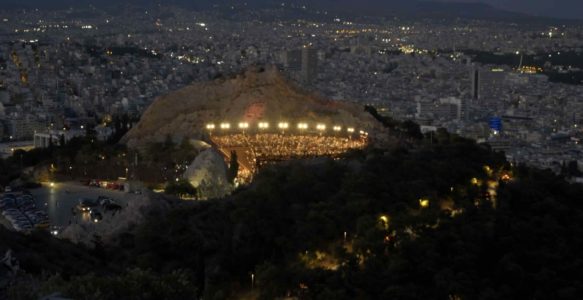24 Hours in Lycabettus, Athens (2024)
This film, titled 24 Hours in Lycabettus, Athens (2024), was created by Evita Belegri, Will F. Stringer, and Felix Keilhack during the Athens Summer School in Visual Ethnographic Practices in 2024, organized by Ethnofest (Athens Ethnographic Film Festival) in collaboration with the University of Amsterdam.
Fueled by ambition, and inspired by the rebellious spirit of our location in the Exarchia district at the heart of Athens, we turned our collective gaze toward Mount Lycabettus, the 277-meter city hill rising just beyond the neighborhood. Surrounded by a grid of steep, rectangular streets and clusters of nearly five-story buildings, the hill functions as both an urban refuge and a vertical retreat.
Lycabettus serves many roles. At dawn, it attracts determined joggers, accompanied by the buzzing chorus of cicadas heralding another scorching summer day. By noon, fire-watch authorities survey the slopes with drones, monitoring temperatures; on such days, local news channels rush to interview them about the risks of wildfires. In the late afternoon, the hill transforms into one of Athens’ most iconic tourist destinations, offering a panoramic view stretching from the Acropolis to the sea. As evening falls, streams of cruise-ship passengers ascend to the viewpoint, jostling for position to capture the perfect sunset shot before picking their way down shadowy paths, where couples are often already nestled among the bushes in moments of intimacy.
Meanwhile, in a natural hollow of the hill, the open-air amphitheater hosts concerts, its melodies resonating through the twilight. A narrow one-way road winds upward, carrying locals and visitors alike to a small parking area with a footpath leading to the summit. After the concerts, long lines of cars snake back down into the city, their taillights glowing like a procession of fireflies. Yet, when the night grows late, the hill becomes a playground for rebellious locals, who drive their beat-up cars and motorcycles up for a beer at the kiosk, drifting in circles on the empty parking lot and leaving their tire marks as signatures on the asphalt. From this height, the city lights flicker into the horizon, merging with the stars above.
What, then, is this hill? From roughly ten hours of 4K footage and three fundamentally different perspectives, we shaped an eight-minute film—a series of vignettes capturing the routine yet diverse ways in which people engage with Lycabettus. In a self-ironic passage, the audience overhears a conversation between Evita Belegri and Felix Keilhack, debating which academic framework, if any, might best describe the mountain. Meanwhile, the calm narration of Will F. Stringer carries the reflections of tourists and locals who, each in their own way, give meaning to the place.
For us, the summer school was an invaluable experience: two intense weeks of collaboration among international students and film enthusiasts from across the humanities. The project was as full of ups and downs as the hill itself—moments of friction, but also of resolution. Ultimately, out of three perspectives, methods, and convictions, a shared film emerged. To a certain degree, it holds together the sum of all the encounters, struggles, and discoveries we gathered along the way.


